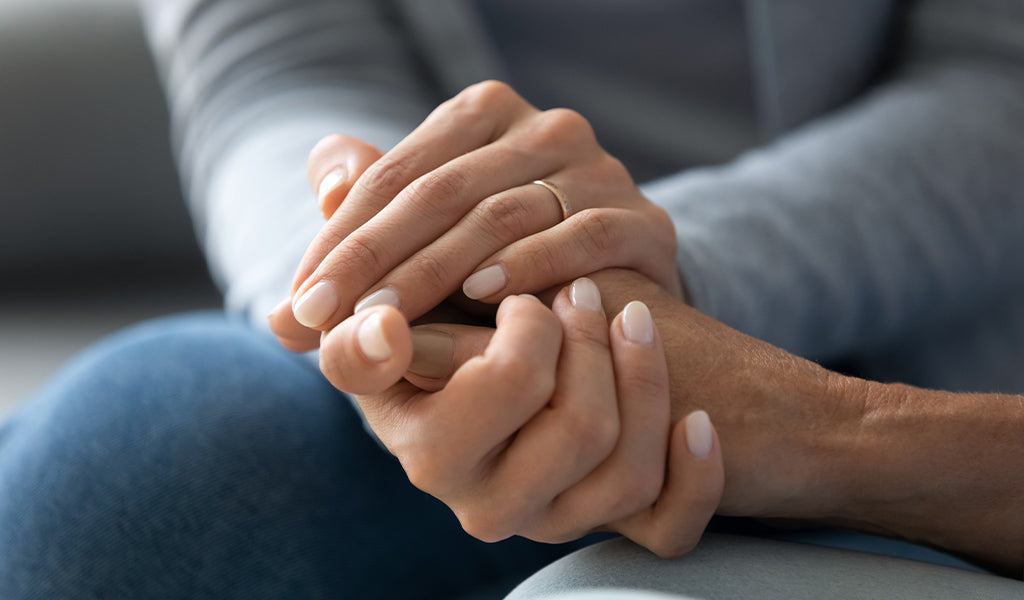There’s a connection between grief and anxiety. Here’s how it works and what to do about it.

Early research on the fallout of the coronavirus pandemic are becoming clear. Even if you don’t have COVID-19, you may be suffering emotional upheaval due to social distancing protocols and worries about the future. This distress may provoke renewed thinking about loss and old symptoms of grief. Researchers are leaning on data following natural disasters where similarities such as rising death toll, fear for the well-being of Loved Ones, and disruption of everyday life fueled anxiety, panic, disturbed sleep, and symptoms of PTSD. This kind of response has been called uncertainty distress and in some cases prolonged grief disorder.
So, what can we do about it?
Here are five strategies for getting control of anxious thoughts. Use them all or only the ones that feel right for you.
Reframe thinking
Instead of imagining bad outcomes, visualize good ones. This requires deliberate thinking and focus. The way you choose to look at the future has the ability to cause anxious-thinking or promote a sense of calm and control.
Focus on breathing
Shallow breathing is a symptom of anxiety. As little as five minutes of deep breathing can be transformative. Use a focal point (a tree outside your window) or think of a special word to help focus your attention.
Practice meditation
For some, this can be intimidating. How do you do it? For how long? Apps that offer guided meditations are helpful because they remove all the guesswork and many are absolutely free. These are some of the apps I like most: InsightTimer, MyLife, and Calm.
Write a letter
Writing a letter to your Loved One can provide a real emotional boost. Putting thoughts on paper (or the computer) enables you to imagine their responses and shed feelings such as guilt, an often overlooked contributor to anxious thinking.
Actively remember
When we proactively keep memories of Loved Ones alive we regain some of the control we lost when they died. This sense of agency cools anxiety. One opportunity is to create a meaningful gift for a Loved One who is grieving this holiday season. Personally, I adore the idea of using a fingerprint to craft a one-of-a-kind Ring, Charm Bracelet, or Pendant. (Discover 85 more creative ways to remember family and friends you never want to forget in my book, Passed and Present: Keeping Memories of Loved Ones Alive.)
If you are feeling overwhelmed right now, please remember you can always call the Substance Abuse and Mental Health Services Helpline. Professionals are available 24/7. The number is 1-800-662-HELP (4357).
If your experience of grief and anxiety is feeling less severe but still a pressing concern, please take advantage of my e-course, Grief & Anxiety: Best Ways to Survive & Thrive. In addition to the video course, you’ll get bonus materials, including “Allison’s Favorite Grief & Anxiety Resources,” a curated review of best books, articles, and must‑try apps. I’ll also reveal opportunities for remembering Loved Ones, even during COVID‑19.
This article was written by author and grief and resiliency expert Allison Gilbert. Learn more by visiting her website www.allisongilbert.com. You can also follow her on Facebook, Twitter, Instagram, and LinkedIn.


